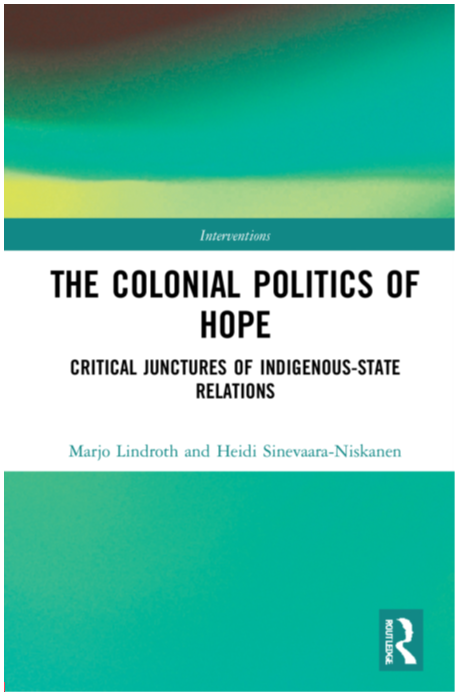In this blog post, Marjo Lindroth and Heidi Sinevaara-Niskanen introduce their new book that delves into the more sinister sides of evoking hope in politics.

Sunset by the Kemijoki river. Photo: Arctic Centre.
Initially we became intrigued by hope because it seemed to figure prominently in politics, especially in the relations between indigenous peoples and states. Indeed, in politics today, hope seems to offer a reassuring palliative amongst formidable challenges. Whether it is about climate change, global migration or security, the rhetoric of global leaders encourages us to retain our hopefulness. The assumption is that in times of uncertainty hope enables us to withstand the unknown in anticipation of a better tomorrow.
In sum, the common perception of hope emphasises its positive sides and the ways in which it drives transformation and enables emancipation. However, in our joint research, we have realised that hope has less discussed and less noble sides. That is, that hope may also be readily utilizable for the exercise of political power with less acceptable consequences. This is the side of hope that previous social scientific scholarship has not sufficiently addressed as it has focused on the transformative potential of hope. However, in our view, the critical question in the connections between hope and politics is how hope can be also used to prevent any meaningful change.
In our new book The Colonial Politics of Hope: Critical Junctures of Indigenous-State Relations (2022), we unpack the links between hope and politics. The book has been published by Routledge in the series Interventions. The series advances critical, innovative and interdisciplinary research of global politics.
The context of our study has been the development of indigenous peoples’ rights in Australia, Finland and Greenland. In all of these countries, there are decades-long and ongoing political processes where indigenous peoples’ rights and positions are negotiated. By looking at these developments, we have examined the larger political logic underpinning all of them – that is, the politics of hope. Indeed, we hope in the present moment, but having those hopes fulfilled always requires an orientation to and a trust in the future. In this sense, hope is a pertinent tool for politics; that is, hope can be politically encouraged without actually committing to the materialisation of those hopes. Crucially, then, politics of hope is about luring us to focus on the promise of the future instead of focusing on the challenges in the present.
When it comes to indigenous-state relations, politics and hope are inseparably tied to the larger question of colonialism. Progress made in these relations has instilled an air of hopefulness that prioritises the prospects of the future at the expense of addressing the dispossession that took place in the past. When it comes to hope, the common perception is that it is something linked to the political endeavours of indigenous peoples, rather than those of the states. However, as our study reveals, states can take up hope and use it for their own purposes. Hope enables states to appear active in furthering the claims of indigenous peoples all the while retaining control over what, when and if, any change takes place. In other words, the hopefulness that is fueled by states functions to keep many political and legal processes open. This side of hope, that is, how it operates for the benefit of those in power, has not emerged as a topic of discussion.
All in all, as hope has a heightened presence in our world, it is well worth critically investigating its broader societal and political significance. It is tempting to hope and to trust the promise of hope but, next time, we encourage you to pause and think whose hopes it is that you are, in fact, playing along with.
Marjo Lindroth and Heidi Sinevaara-Niskanen.
